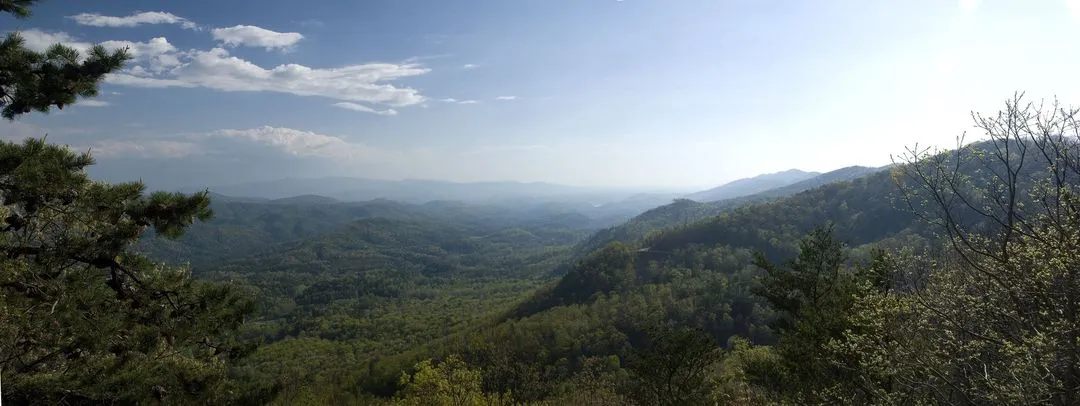Displaying items by tag: farmland preservation
Southeast Tennessee ridges and rivers will benefit from $10m infusion of federal natural resource funding
 A crimper is attached to the back of a tractor on a farm in the Sequatchie River Valley. A relatively recent agricultural technique, crimping has been shown to reduce farmers’ input costs and improve soil quality. Recently, USDA approved funneling $10 million into a six-county region of Southeast Tennessee. This money will fuel conservation-minded improvements for landowners, including lowering the cost to rent equipment like crimpers and subsidize the planting of cover crops to improve soil health and reduce sedimentation in nearby streams. Tennessee Aquarium
A crimper is attached to the back of a tractor on a farm in the Sequatchie River Valley. A relatively recent agricultural technique, crimping has been shown to reduce farmers’ input costs and improve soil quality. Recently, USDA approved funneling $10 million into a six-county region of Southeast Tennessee. This money will fuel conservation-minded improvements for landowners, including lowering the cost to rent equipment like crimpers and subsidize the planting of cover crops to improve soil health and reduce sedimentation in nearby streams. Tennessee AquariumTargeted collaborative conservation will help local agricultural operations improve soil and water quality and protect aquatic life
CHATTANOOGA — Tennessee is as much a patchwork quilt of farms as it is an intricately woven lacework of streams and rivers. Soon, farmers and the aquatic life living alongside them will reap the benefits of $10 million in federal funds to support water-friendly agricultural improvements in the rolling uplands of the state’s southeastern corner.
The U.S. Department of Agriculture (USDA) approved the allocation of more than $197 million to support Regional Conservation Partnership Programs (RCPP) throughout the nation. These initiatives promote coordination between USDA’s Natural Resources Conservation Service (NRCS) and partnering organizations that are already engaged in conservation efforts.
- tennessee aquarium conservation institute
- tennessee aquarium
- tennessee department of environment and conservation
- farmland preservation
- land water preservation in se tennessee
- usda
- regional conservation partnership program
- ridge to river
- walden ridge
- sequatchie valley
- laurel dace
- natural resources conservation service
- chattanooga environment
- southeast tennessee environment
- tennessee endangered fish
- rcpp
Preserving our heritage: Foothills Land Conservancy reaches 135,000-acre milestone
 A view of some of the land preserved by Foothills Land Conservancy on the Cumberland Plateau. Courtesy Foothills Land Conservancy
A view of some of the land preserved by Foothills Land Conservancy on the Cumberland Plateau. Courtesy Foothills Land Conservancy
Foothills Land Conservancy preserves land and multiple habitats across seven states
Foothills Land Conservancy rang in the new year with the preservation of 250 undeveloped acres along the Little Pigeon River in a rapidly growing area of Sevier County in East Tennessee.
The deal was finalized in late 2020 — a fitting end to the Blount County conservancy’s 35th year.
Foothills Land Conservancy has protected about 135,000 acres in seven states, including 95,000 acres in East Tennessee, since its inception in 1985. For comparison’s sake, that’s nearly a third of the protected land that encompass the 500,000-acre Great Smoky Mountains National Park. Most of that land has been acquired since 2006, when former state Sen. Bill Clabough became executive director.
“We’ve been really growing and expanding,” Clabough said late last year from the conservancy headquarters on the century-old Harris family farm in Rockford.
The farm itself is under a conservation easement, one of several ways the conservancy preserves and protects natural and agricultural lands.
“When you do good work you don’t have to do a lot of advertising,” said Clabough, 69, a likable former country store owner and Wildwood native whose political public service came to an end in 2005 when the moderate Republican incumbent was defeated by a firebrand conservative in the Senate GOP primary.
“It was the best thing that ever happened to me,” Clabough said of his primary defeat.